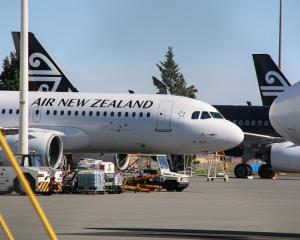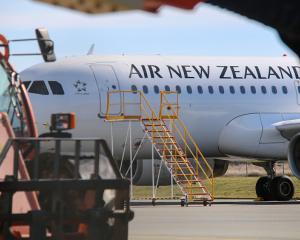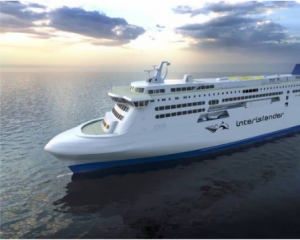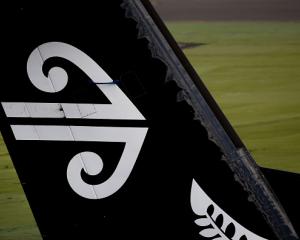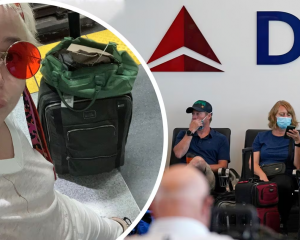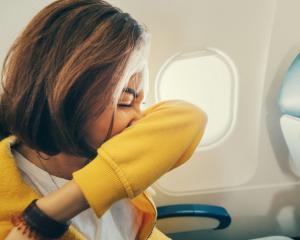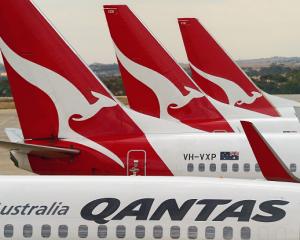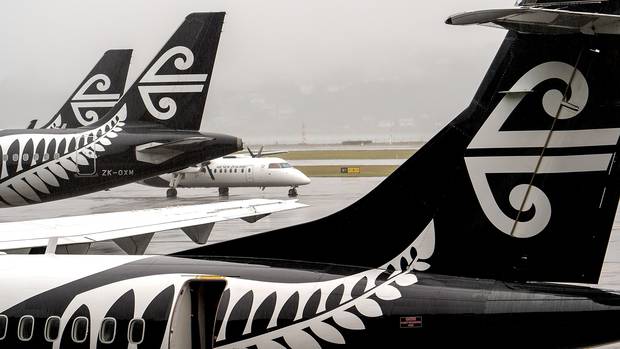
The airline's chief executive Greg Foran has spoken with Health Minister Chris Hipkins today and outlined the precautions the airline is taking.
"We understand the Government is considering options for improvements to their current testing regime and we are completely supportive of this," he said.
The protocols the airline had were established in conjunction with the Ministry of Health.
"We know these have been working because since early April, we haven't had a case of Covid-19 in the airline," said Foran.
"However, we acknowledge that all systems and processes should be regularly reviewed, and we are committed to working with Government to do even more to protect our staff, customers and New Zealanders from Covid-19."
Air New Zealand has worked closely with Ministry of Health officials in implementing the measures in place today. High, medium or low-risk destinations are set by the Ministry of Health and this risk matrix is reviewed regularly. Measures include:
On all flights
• Crew wear masks and gloves when interacting with passengers
• Crew wear full PPE when dealing with unwell passengers
For medium-risk layovers, including Narita, Hong Kong, Shanghai
• Aircrew wear masks and gloves when moving through the terminal
• Aircrew use private crew transport to hotels, not mixing with other passengers
• Aircrew isolate in hotels, limiting trips outside to 1hr per 24-hour period
• Aircrew are not allowed to use the hotel gym or pool while on layover
• Aircrew are not allowed to meet with other crew while on layover
For high-risk layovers – San Francisco and Los Angeles
• Aircrew wear masks and gloves when moving through the terminal
• Aircrew use private crew transport to hotels, not mixing with other passengers
• Aircrew isolate in hotels for duration of layover
• Aircrew are not allowed to use the hotel gym or pool while on layover
• Aircrew are not allowed to meet with other crew while on layover
• All food must be delivered to rooms
• On return home, air crew must isolate for 48 hours, complete a Covid-19 test, then isolate until test results are known
In addition to the Ministry of Health measures outlined above, Air New Zealand has also put in place a range of its own measures, including:
• Segregating A320 crew so they do not operate both internationally and domestically
• Cleaning the aircraft with antiviral products approved for use by aircraft manufacturers and the World Health Organisation
• Providing hand sanitiser on board and in airports for customer use
• Requiring passengers on board domestic and international services to wear masks, replaced every 3-4 hours on long-haul flights
• Ensuring aircrew have multiple channels through which to raise concerns
• Strongly encouraging Auckland Airport-based staff to be tested in response to the recent outbreak in Auckland. This has resulted in huge numbers of staff presenting for voluntary tests.
[[{"type":"instagram_post_url","src":"https://www.instagram.com/p/CD29MNFlAyy/?utm_source=ig_embed&utm_campaig...","odtEmbed":true}]]
In addition to the New Zealand Government's requirements, several international destinations require Covid-19 testing of aircrew before departure, on arrival, or both.
This includes prior to operating flights to Hong Kong, China and Samoa.
"Tackling Covid-19 is a team effort and we want to ensure we're doing our part to help minimise the spread and keep our communities safe," said Foran.
"It's fair to say our pilots and cabin crew have borne the brunt of the impact of Covid-19, on a very personal level. This has tremendous impact on their everyday life and wellbeing. As does having to self-isolate back at home upon returning from higher risk destinations. This causes disconnection from family, friends and everyday activities."
Most of international destinations have strict protocols in place to ensure crew are not exposed to Covid-19 during their layover.
"Any crew who are symptomatic, or who have had to break isolation offshore to seek medical attention, for example, must enter quarantine on return to New Zealand,'' he said.
The airline has in-house testing for Covid-19 as some crew need to have confirmation of a negative test prior to departure to some destinations.
Pilots say Hong Kong requires a negative test within 48 hours of arrival there and they are tested once again when they arrive in the territory.
NZ Air Line Pilots Association president Andrew Ridling said earlier this week that crew are in personal protective equipment throughout their journey. Air New Zealand is flying mainly freight flights to Los Angeles, Shanghai and Hong Kong where there are strict rules confining air crew to hotel rooms for days during layovers.
According to Ministry of Health rules released in June aircrew - which includes pilots and flight attendants - who come home from ''high risk'' journeys must self isolate at home for two nights and have a Covid-19 test and stay in self isolation until the result of the test is known.
Under guidelines others in the crews' household do not need to self-isolate, provided a long list of health and hygiene precautions are taken. Pilots say their families have faced vilification in the community from others worried about Covid.
The ministry says high-risk flights involve layovers of longer than two nights or where there is less tightly controlled accommodation and or no dedicated crew transport.
It says the Covid transmission risk of a country is discussed with the airline on a case by case basis.
Air New Zealand today said that domestic crew and those operating the managed isolation flights are not required to be routinely tested as they are wearing appropriate PPE (gloves and masks) on board and in the terminal.
''We are following the Ministry of Health guidance in full, have assessed the risks according to international best practice and have addressed these appropriately. Our crew are wearing gloves to prevent transmission through touch and masks to prevent transmission via droplets,'' a spokeswoman said.
Airbus A320s used on the managed isolation flights to Wellington or Christchurch are fitted with hospital grade filtration units to filter out the virus.
Since the imposition of alert level 3 restrictions in Auckland only essential workers are supposed to be flying out of the city, which the spokeswoman said Aviation Security enforces.
Passengers must wear masks on flights out of Auckland and they are encouraged on other parts of the airline's network. Social distancing - which cuts capacity on turbo prop planes to the regions to 50 per cent and 65 per cent on jets - was in place.





